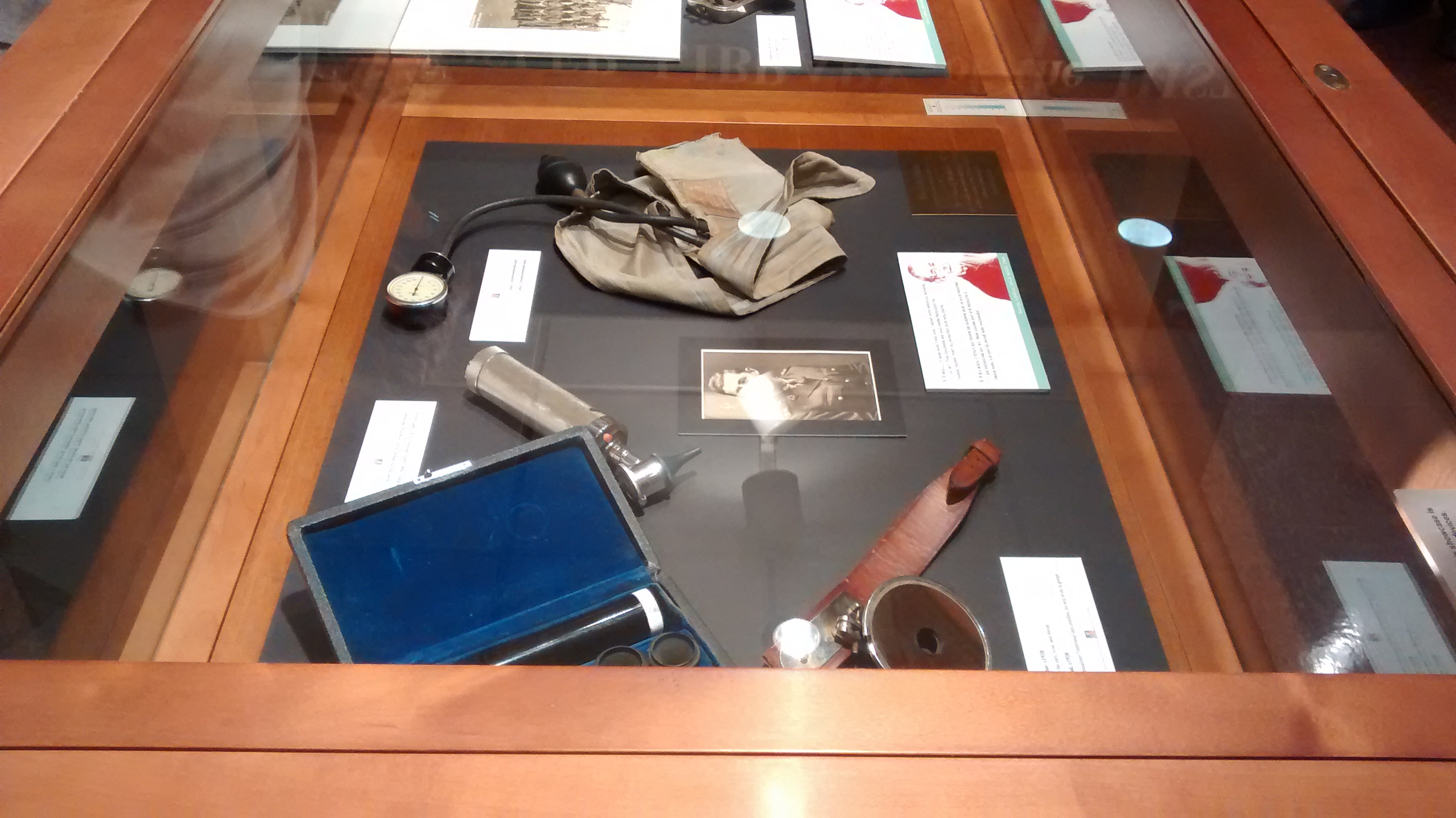McGill Celebrates Huntingdon’s Dr. Georges Lefebvre

McGill’s Osler Library at the McIntyre Medical building recently hosted an exposition showcasing the work and cultural history of Dr. Georges Lefebvre.
Well known in the Huntingdon area, Dr. Lefebvre practiced as a family doctor from his home on the corner of rue Prince and Bouchette for 45 years. Dr. Lefebvre also worked in the former Huntingdon Hospital ER and as a local coroner.
The expo: Rural Medicine in 20th Century Quebec: Stories and Devices included the donated medical instruments from Dr. Lefebvre’s career, as well as an audio visual display with stories from his time as a rural doctor. When Dr. Lefebvre first started his practice, he acquired a number of medical instruments from another local doctor’s widow. Since retiring in 1990, the instruments that dated back to the early 1900’s had been in storage. He rediscovered the antiquated items last year when it became time for him to downsize, and donated them to the McGill Maude Abbott Medical Museum.
Georges was born of French Canadian and Irish decent in Saint Antoine-Abbé where his father ran the general store. As a young man, he moved to Montreal to pursue a Bachelor of Arts at McGill and afterwards did a three-year medical degree. At the time, the usual four-year-program had been condensed to three to encourage enrollment for wartime doctors in demand. After interning at Saint Mary’s hospital, Georges worked as an army corps doctor in the Maritimes before returning to Huntingdon, QC to start a family practice.
The times were very different during the mid-1900’s and his son, Denis Lefebvre, remembers patients visiting their home until late into the evening. “Sleep was always one of my biggest challenges,” Georges Lefebvre concurs. “It wasn’t like a clinic today. There was only one door in and one out. Many patients wanted to stick around and talk.” As a coroner, ER doctor, and childbirth specialist, he also had to regularly leave the house at all hours of the night.
Dr. Lefebvre had to be given special permission to acquire a car in depression times to travel to women giving birth in the countryside. In inclement weather, farmers would have to meet him at main roads with horse and buggy to transport him the rest of the way to deliver babies at snowed-in rural homes. For the first few years of his practice, he doubled as a pharmacy needing to have medications on hand; he also completed further study in anesthesiology. As a man who wore many hats in the medical profession, he chuckles when recalling that his salary tripled in the early 70’s when Medicare came into effect because he had so often worked for free.
Plans are in the works to permanently house Dr. Lefebvre’s collection of medical instruments and rural medicine history on the third floor of the McIntyre Medical building.